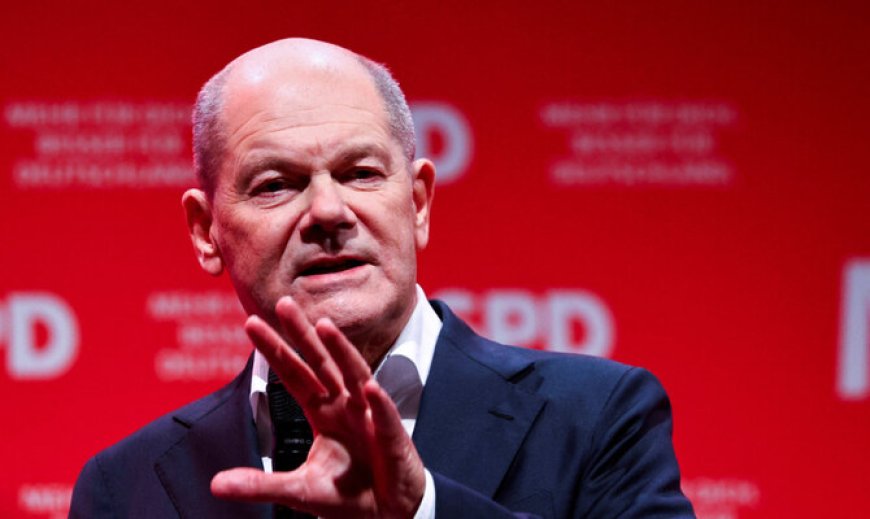Olaf Scholz, the German Chancellor, has expressed his dissatisfaction with Trump's request for Ukrainian rare earths in exchange for military assistance.

Former President Donald Trump's demand that Ukraine provide rare earths in exchange for continued U.S. military aid has been sharply criticized by German Chancellor Olaf Scholz, who has referred to the proposal as "selfish and self-serving." Scholz reiterated his belief that international support for Ukraine should be unconditional in an interview that was published on February 9, 2025, in which he conveyed his disapproval of Trump's stance.
Scholz, who had previously characterized Trump's demands as "extremely selfish" in the aftermath of a European Union summit in Brussels, underscored that Ukraine is currently under attack and requires assistance without the unnecessary burden of negotiating its valuable resources in exchange. "We are assisting Ukraine in the face of an attack without requesting compensation." Scholz stated in an interview with the RND media group that this should be the stance of all individuals.
However, Trump has been vocal about his desire for "equalization" from Ukraine in exchange for U.S. financial and military assistance. In his proposal, he explicitly referenced Ukraine's extensive deposits of rare earth metals, which are essential for a variety of applications, including military technologies and electric vehicles. Trump's strategy involves the securement of Ukrainian rare earths in exchange for U.S. aid. He asserts that the United States is investing "hundreds of billions of dollars" in the conflict and desires "security of rare earths" in return.
Scholz's response emphasizes his conviction that the assistance should prioritize Ukraine's defense and sovereignty, rather than employing the nation's strategic assets as a bargaining tool. He had previously recommended that Ukraine's resources be allocated for post-war reconstruction and the reinforcement of its military, rather than being utilized to mitigate the costs of ongoing support.
Volodymyr Zelensky, the President of Ukraine, has also addressed the matter, suggesting that Ukraine is amenable to receiving investment from U.S. corporations in its rare earths sector. This is in accordance with Zelensky's peace plan, which was unveiled in October. The plan included a proposal for a "special agreement" with partners to jointly exploit strategic resources, including uranium, titanium, lithium, and graphite.
Rare earths are not explicitly mentioned in Zelensky's plan; however, the ongoing dialogue between Kyiv and Washington underscores the strategic significance of these materials in contemporary economies, particularly in the energy and defense sectors. Scholz's criticism, in spite of Trump's proposals, reflects the broader European skepticism regarding the association of aid with resource-driven agreements.













































